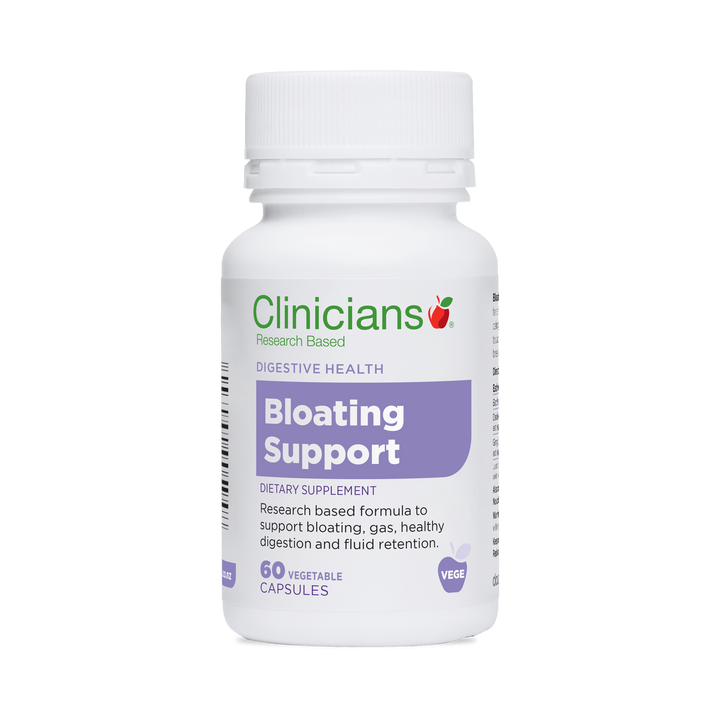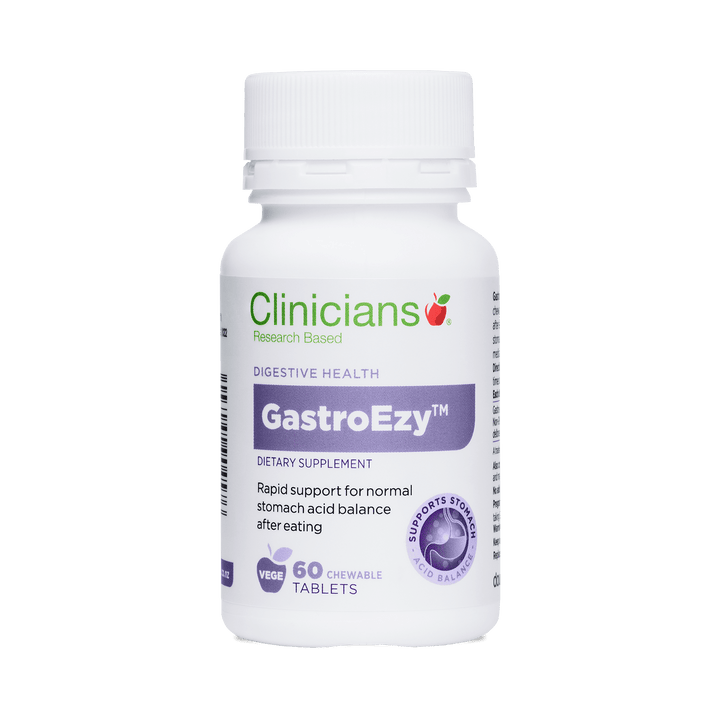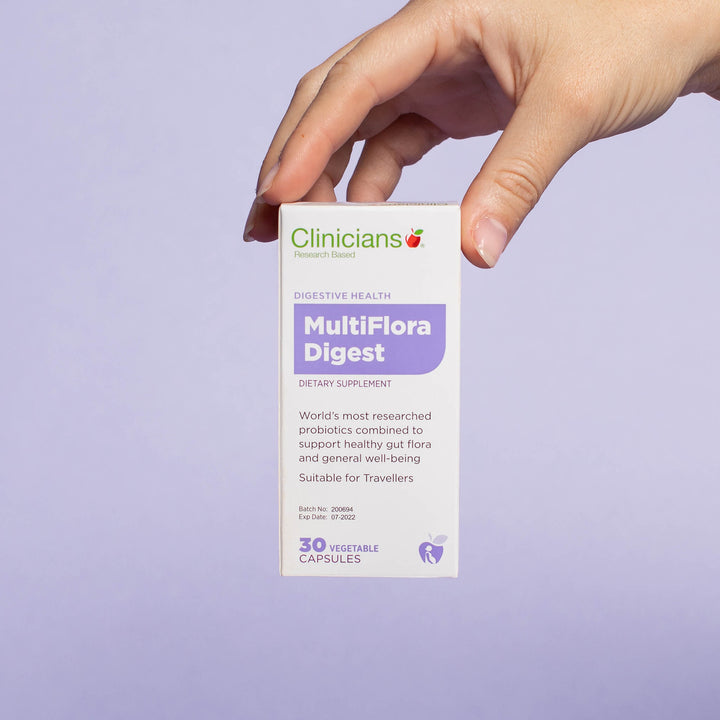Your stomach is the first place to process your food and it's filled with acid! If your acid is in balance it helps ease digestion, if it's out of balance it can lead to discomfort and give you the burn. How is your stomach acid balance?
When we have eaten something that does not agree with us, the first place it tends to show is in the stomach. We might feel discomfort, bloating, acidic, nauseous or experience burping. This is because our stomach is the first place our food lands after chewing and swallowing. So what is going on in there?
What happens in the stomach?
Our stomach is essentially an expandable storage tank. When empty it shrinks into small folds around 50ml in size, but it can expand to hold up to 4 litres of food (remember that next time you have overeaten). The inside of the stomach is lined with cells, which produce a variety of different substances. Goblet cells produce an alkaline mucous that coats all of the stomach lining, protecting it from all the acid that it holds. Other cells continually produce the hydrochloric acid that is stored in the stomach. These keep the stomach at a pH of between 1.5 to 3.5 (very acidic), which allows it to work at its best.
Our stomach creates enzymes, like pepsin, that help to start breaking down the protein in the food we have eaten. Stomach cells also create lipase that helps to break down fat. It also creates a substance called intrinsic factor that is essential for the absorption of vitamin B12.
By the time food is ready to leave the stomach it has been churned up almost to a liquid. This is sent through to the small intestines for nutrient absorption. It is worth noting that the stomach is also the place where alcohol and drugs like aspirin are absorbed.
Why do we have stomach acid?
There are several reasons why we have stomach acid.
- Self defence - as the stomach is the first place food arrives in the body, it is essentially our first line of defence. Having a pool of acid will help kill any bacteria or parasites that may have been in our food.
- Activate digestive enzymes - the cells in our stomach create enzymes, but they need to be activated by stomach acid.
- Breakdown of food - the strong acidic environment helps food to be broken down
What happens if our stomach acid is out of balance?
Sometimes our stomach acidity can get out of balance. It can lead to our stomach becoming too acidic or not acidic enough. The result of stomach acid change can lead to symptoms such as:
- Burping
- Nausea
- Stomach discomfort
- Bloating
- Poor tolerance to certain foods such as fatty food
- Acidity coming up the throat and food repeating
What causes stomach acid imbalance?
When looking at over-acidity, diet can play a big part as certain foods and drinks can be very acid-forming. Coffee, sugary drinks and alcohol are culprits when taken in excess. Junk or convenience food can be very fatty and be high in acid-forming ingredients like white flour and sugar.
Stress is also known to be an important factor in causing over-acidity.
With regards to stomach acid becoming less acidic, age is a factor. As we age our stomach cells decline in their production of stomach acid.
Also, many people come to rely on acid-lowering prescription medicines or over the counter products. It may be that at one time they struggled with over-acidity, but long-term use of products has now overcorrected this and stomach acid is too low.
Do you want to know if your stomach acid is in balance?
If you are digesting food easily and have no stomach upsets or issues, then likely you are in balance. However, if you do have stomach niggles the next question to answer is "Am I too acidic or have too little acidity?"
To help answer this question we have a simple test that you can try. And the good news is, it uses something you probably have in your pantry!
Apple cider vinegar test
Take 1 tablespoon of apple cider vinegar in warm water before your main meal.
If you find that your digestion feels fine or improves as a result, then you might need a little additional acidity. This means you can take apple cider daily before your main meal or see our tips on creating more stomach acid.
If you find that after taking apple cider your feel more uncomfortable, your stomach may already have enough acidity. So, for starters do not take any more apple cider vinegar and see our tips on helping balance stomach acidity.
How can I increase my stomach acid?
- Start to increase acidic foods in your diet. For example, vinegars, juice from citrus fruits such as limes, lemons, oranges or pickled foods.
- Bitter foods encourage the release of digestive juices in the stomach. These include dark green leafy vegetables like rocket, kale, spinach and many herbs like parsley and dill.
- Try to cut back on antacids if you have been taking them long term.
How can I bring my stomach acid back into balance?
- Cut back on processed foods that are high in flour, sugar and bad fats. Gluten is something that often creates acidity in many people, so try going gluten free for a week and see if there is any improvement.
- Cut back on alcohol and coffee as these are very acidic.
- Look at increasing healthy bacterial balance that can help support stomach acid balance.
Smooth digestion is so important for breaking down our nutrients and activating vitamins and minerals in the body. Long term issues might suggest following a gut repair protocol to resolve any underlying issues.
If you feel you need some help with digestive health, then book a free appointment to talk to one of our Naturopaths.










